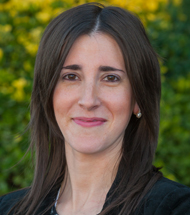Maddi Olano Lizarraga, PhD in Nursing Science. Professor and researcher. School of Nursing. University of Navarra
Heart attacks with names and surnames

That cardiovascular diseases are the leading cause of morbidity and mortality in our society is perhaps nothing new to anyone. Stroke, acute myocardial infarction, angina pectoris, heart failure, valvular heart disease or congenital malformation, among others, can be found at agenda. Taking into account the overall population, these are the people who require the most health care and, therefore, those who generate the most expense health care, since once the acute phase is over, these are diseases that tend to become chronic.
To help control this status, a great deal of health research is being carried out, mainly aimed at preventing these diseases, improving symptom control, optimizing the treatments administered and avoiding possible complications. In addition, more and more specialized health services are emerging. News like this subject is encouraging, positive and necessary, even more so when today we commemorate World Heart Day. However, I myself wonder: What role do people with cardiovascular disease play in all this? What is their day-to-day life with the disease like? What worries them most? Does anyone ask them about it?
From the area of research of Innovation for Person-Centered Care of the School of Nursing of the University of Navarra, we have been able to observe that living with a chronic cardiac process is an event that intensely marks the life of the person. The numerous changes they undergo in their physical state lead them to experience a great impact on an emotional, social, occupational and spiritual level. Most of them must adapt to new lifestyles that involve a great change, seeing repercussions in their family life and friendships, giving up some of the things they did before and trying to accept their new life status . But let's go further: when someone is in this situation of so much change and has seen their life endangered, at least at some point, they stop worrying about their treatments or check-ups, as they fully trust the health professionals who are attending them and know that they are doing everything in their power to make their status better. But in these consultations, does any professional ask them about how they are experiencing everything that is happening to them? And if they do, do they really attend to those aspects raised by the patient?
In their day-to-day lives, when they are at home for example, they question their fears and deepest and most personal concerns that professionals are not fully covering. From the School of Nursing of the University of Navarra we are strongly betting on a way of research that helps people with chronic heart failure to live better their process and improve their wellbeing. Specifically, we have designed a project in partnership with several hospitals in Navarra and others at a national level to continue advancing in this area.
Today, on this day so marked in the calendar, I wish to encourage both people suffering from heart disease and the professionals who care for them, as well as the family members who accompany them day after day, to stop more to talk, to look each other in the eye, to share, to trust each other. At final, to open ourselves as people to also attend to what is inside them, to their emotions and fears, thus fostering what truly gives meaning to their lives, what gives them hope and encourages them to continue and to strive. Because behind every heart attack, there is a person, not just a transcript.
